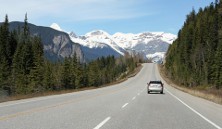Since as a rule, we don’t normally think about the brakes on our cars until they don’t work, we thought we would share with you five signs you need new brake pads. 
- High- pitched squealing or screeching sound. If you hear a high-pitched squealing, this sound is coming from a small piece of metal called an indicator. The indicator rubs up against the brake rotor creating the squeal to alert you to the fact that you need new brake pads. If you hear this sound regularly you should have your car inspected as soon as possible. Your brakes can also squeal if your car has been exposed to water and then left sitting. This squealing should clear up after a few stops and isn’t anything serious.
- Pulling. If your car pulls to one side or another when you press the brake, that can be a sign that the brake pads are wearing unevenly and need to be replaced.
- Lack of Response. If your brakes don’t respond like they should when you step on the brake pedal or if the brake pedal feels soft, it might be a sign of a leak in the braking system. You could have an air leak in the brake hose or a brake fluid leak. If you see a small puddle under your car when it is parked, it could be leaking brake fluid and you should have a mechanic look it over.
- Grinding. This is one of the signs that the brake pads have very serious wear and are in danger of damaging the brake rotors. The grinding sound is caused by the disc and the caliper rubbing together. New brake pads sit between the disc and the caliper and keep them from rubbing together. When you allow your brake pads to wear down completely then they don’t “cushion” the metal parts as they should.
- Grabbing or vibrating. If your brake pedal grabs or vibrates, this is often a sign of warped rotors, but it can also mean that your car is out of alignment. If it’s a sign of warped rotors, the grabbing or vibration happens when the anti-lock brakes aren’t engaged. Rotors can be warped by severe driving conditions where you are using your brakes for longs periods of time, like steep mountain driving or towing. This type of driving causes huge amounts of friction which heats up the rotors and causes them to warp. If you drive in these conditions, stop periodically and let the brakes cool off.
As you can see, properly maintaining brake pads happens progressively. Be aware to the early signs of brake pad wear. It can save you time and money.
